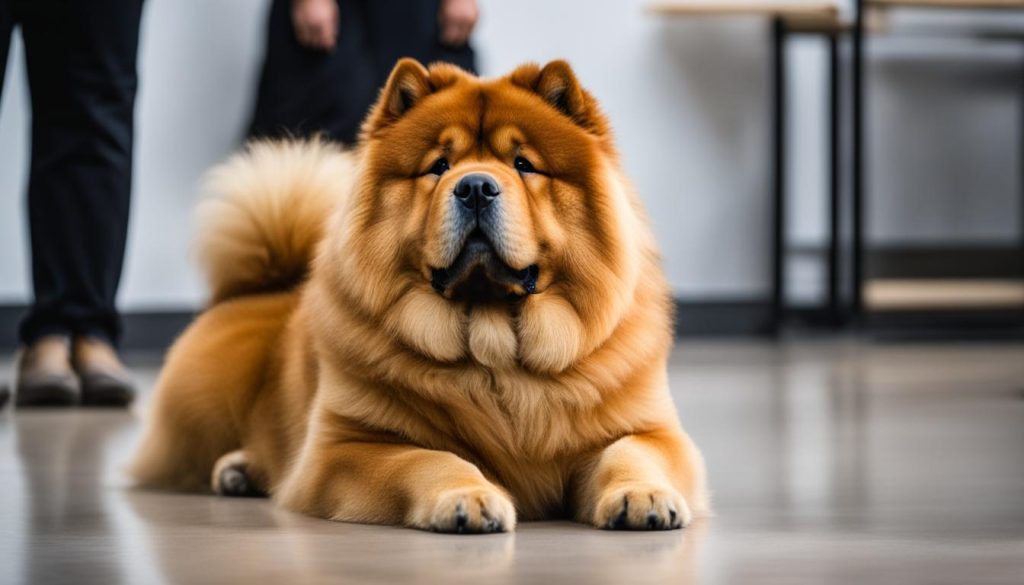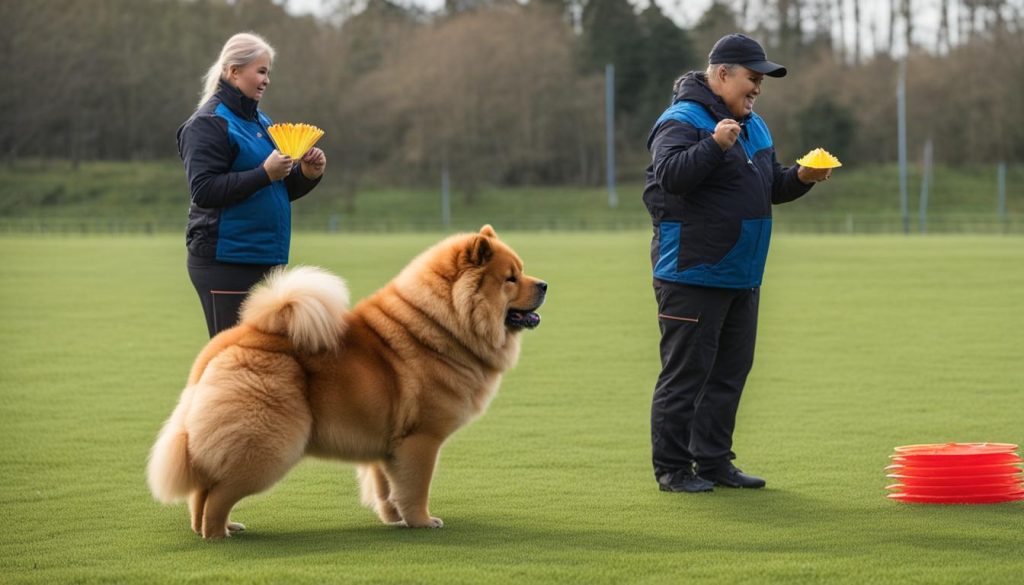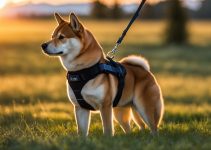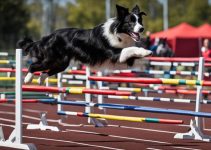Welcome to my Chow Chow training guide! If you’ve recently welcomed a Chow Chow into your family, you may be wondering how to effectively train this unique and regal breed. As a Chow Chow owner myself, I understand the importance of using the right tools and techniques to address behavior problems and ensure a well-behaved companion.
Chow Chow Training requires a different approach compared to other breeds. Their independent and strong-willed nature means that traditional training methods may not be as effective. That’s why it’s crucial to understand the specific training principles for Chow Chows to achieve success.
In this guide, I’ll provide you with valuable insights and techniques to help you navigate the training journey with your Chow Chow. From understanding the breed’s characteristics and health care to grooming tips and effective training techniques, you’ll find everything you need to know to raise a happy and well-behaved Chow Chow.
Easy Chow Chow Training New Owners Can Do
- Chow Chows require a tailored approach to training due to their unique characteristics.
- Understanding the breed’s history and traits is essential for effective training.
- Proper grooming is crucial to maintain a Chow Chow’s coat.
- Consistency, patience, and positive reinforcement are key elements in training a Chow Chow.
- Early socialization is vital for a well-rounded and balanced Chow Chow.
Understanding the Chow Chow Breed
The Chow Chow is a distinct and noble breed known for its regal appearance and unique features. With their thick double coat, lion-like mane, and blue-black tongue, Chow Chows have a striking presence that sets them apart from other breeds.
Originally bred in China for hunting and guarding, Chow Chows possess strong instincts and an independent nature. They are known for their loyalty and devotion to their families, making them excellent companions.
When it comes to Chow Chow Training, it’s important to understand their breed characteristics. They have a strong will and can be stubborn at times, so consistent and patient training methods are key. Positive reinforcement techniques work best for Chows, as they respond well to rewards and praise.
Training a Chow Chow puppy requires early socialization and gentle guidance. Exposing them to different people, animals, and environments will help them develop into well-rounded adults. Leash training is also an essential aspect of their training, as Chows tend to have a strong prey drive and can be prone to pulling.
Understanding the breed characteristics of the Chow Chow is crucial for successful training. With their independent nature and regal demeanor, Chow Chows require consistent training methods and early socialization. By investing time and effort into their training, you will have a well-behaved and loving companion for years to come.
Caring for Your Chow Chow’s Health
Maintaining the health of your Chow Chow is crucial for successful training. A healthy dog is more likely to respond well to training and exhibit good behavior. In this section, I will discuss important aspects of Chow Chow care that contribute to their overall well-being and training success.
Behavior Training for Chow Chows
Chow Chows, like any other breed, can exhibit certain behavior issues such as chewing, barking, and jumping. It is important to address these issues through behavior training. Consistency and positive reinforcement are key when training your Chow Chow. By using rewards and praise when they display the desired behavior and redirecting their attention when they exhibit unwanted behavior, you can help shape their behavior effectively.
Leash Training a Chow Chow
Leash training is essential for the safety of your Chow Chow and to ensure they can be walked comfortably in public spaces. Begin by introducing your Chow Chow to the leash gradually, allowing them to get used to wearing it before starting any actual training. Use positive reinforcement techniques, rewarding them with treats and praise when they walk calmly beside you. Avoid pulling on the leash or yanking it, as this can create a negative association with the leash and hinder their progress.
House Training a Chow Chow
House training, or potty training, is an important aspect of Chow Chow care. Start by establishing a consistent routine for bathroom breaks, taking them outside at regular intervals. When your Chow Chow eliminates in the appropriate spot, reward them with treats and praise to reinforce the desired behavior. Be patient and consistent during the house training process, as it may take time for your Chow Chow to fully understand and adapt to the routine.
Remember, every Chow Chow is unique, and Chow Chow training methods may need to be tailored to suit their individual needs and personality. By providing proper behavior training, leash training, and house training, you can ensure the overall health and well-being of your Chow Chow while setting them up for training success.

Grooming Your Chow Chow
Grooming is a crucial aspect of taking care of your Chow Chow, especially considering their thick double coat. Regular maintenance and proper grooming techniques are essential to ensure their coat remains in good condition.
One important grooming tip for a Chow Chow is regular brushing. Their dense fur tends to tangle and mat easily, so daily brushing is recommended to prevent this. Use a slicker brush or a comb with wide teeth to gently remove any knots or tangles. This not only helps to keep their coat looking neat but also promotes healthy skin and circulation.
Bathing your Chow Chow should be done on a monthly basis or as needed. Use a mild dog shampoo and ensure thorough rinsing to prevent any residue buildup. It is also advisable to use a conditioner specifically formulated for dogs to keep their coat soft and shiny.
Trimming your Chow Chow’s nails regularly is another important grooming task. Overgrown nails can cause discomfort and may even lead to injury. If you are not comfortable trimming the nails, a professional groomer or veterinarian can assist you.
Furthermore, don’t forget to check your Chow Chow’s ears regularly. Their floppy ears are more prone to ear infections and should be cleaned with a veterinarian-recommended ear cleaning solution.
Lastly, dental care is crucial for your Chow Chow’s overall health. Regular brushing with a dog-specific toothbrush and toothpaste can help prevent dental issues such as tartar and plaque buildup.
Taking the time to groom your Chow Chow not only helps them look their best but also promotes their well-being. By following these grooming tips, you can ensure your Chow Chow has a healthy and lustrous coat.
Training Techniques for Chow Chows
When it comes to Chow Chow Training, patience, consistency, and positive reinforcement are key. This noble breed requires a unique approach to training, and by following effective techniques, you can ensure success in teaching essential commands and addressing behavior issues.
To start, it’s important to establish a chow chow training schedule. Consistency is crucial in reinforcing good behavior and establishing a routine. By dedicating regular time slots for training sessions, you can create a structured environment that helps your Chow Chow understand expectations and boundaries.
Positive reinforcement is a powerful tool in chow chow training. Instead of using punishment or harsh methods, focus on rewarding your Chow Chow for desired behaviors. Whether it’s treats, praise, or playtime, positive reinforcement will motivate your dog to repeat the desired actions and build a strong bond between you.
When teaching obedience commands, break them down into smaller steps. Start with simple cues like “Sit” or “Stay” and gradually progress to more complex commands. Use treats or toys to guide your Chow Chow into the desired position and reward them when they respond correctly.
Remember to be patient with your Chow Chow as they may have an independent streak. Keep training sessions short, around 10-15 minutes, and end on a positive note. This will help prevent frustration and maintain your Chow Chow’s interest in learning.

Gaining your Chow Chow’s trust and respect is crucial for a successful Chow Chow training. Clear communication, consistency, and positive reinforcement will not only teach your Chow Chow essential obedience commands but also foster a harmonious relationship between you and your furry companion. Stay committed, stay positive, and enjoy the rewarding journey of Chow Chow training!
Socializing Your Chow Chow
Early socialization is crucial for Chow Chows to develop proper behavior and interactions with people and other animals. Socializing a Chow Chow can help prevent behavior problems and create a well-rounded and balanced dog.
When it comes to socializing your Chow Chow, it’s important to expose them to a variety of people, animals, and environments from a young age. This helps them become familiar with different sights, sounds, and smells, reducing the likelihood of fear or aggression later in life.
Here are some tips to help you socialize your Chow Chow effectively:
- Start early: Begin socializing your Chow Chow as early as possible, ideally when they are still puppies. This allows them to adapt more easily and form positive associations with new experiences.
- Positive experiences: Introduce your Chow Chow to new people, animals, and situations in a positive way. Use treats, praise, and rewards to reinforce good behavior and create positive associations.
- Gradual exposure: Start with controlled and calm environments, gradually increasing the level of exposure to new experiences. This helps your Chow Chow feel more comfortable and confident.
- Attend training classes: Enroll your Chow Chow in puppy classes or obedience training. These classes provide structured socialization opportunities and also help teach basic commands and manners.
- Supervised interactions: Always supervise interactions between your Chow Chow and other dogs or animals. This ensures their safety and allows you to intervene if any issues arise.
Remember, every Chow Chow is unique, and some individuals may require more time and patience during the socialization process. Be consistent, patient, and always reward positive behavior.
Conclusion
Chow Chow training requires a deep understanding of the breed’s specific needs and characteristics. With the right techniques and consistent practice, you can successfully train your Chow Chow to be obedient and well-behaved.
One of the best techniques for training a Chow Chow is to use positive reinforcement. Reward-based methods, such as praising and treating your dog when they exhibit desired behaviors, can be highly effective in motivating them to learn and obey commands. Consistency is key, so be sure to set a training schedule and stick to it.
Additionally, don’t forget to prioritize your Chow Chow’s health and grooming. Regular veterinary check-ups and proper grooming practices, such as brushing their thick double coat and providing regular baths, are essential for their overall well-being and hygiene.
Lastly, socialization is crucial for a well-rounded Chow Chow. Exposing your dog to various environments, people, and other animals from an early age can help prevent behavior problems and ensure that they develop into a well-adjusted and sociable dog.
FAQ
How should I train my Chow Chow?
Training a Chow Chow requires patience, consistency, and positive reinforcement. It is important to use reward-based methods and follow a training schedule to teach essential commands and address behavior issues.
What are the specific training principles for Chow Chows?
Traditional training methods may not be as effective for Chow Chows. Understanding their breed characteristics and using tailored training techniques are essential for successful training.
How can I leash train my Chow Chow?
Leash training is an important aspect of Chow Chow care. It is best to start leash training at a young age using positive reinforcement techniques, gradually increasing the duration and intensity of walks.
How do I care for my Chow Chow’s health during training?
Proper behavior training, such as addressing common issues like chewing, barking, and jumping, is crucial for your Chow Chow’s overall health and well-being during the training process.
How should I groom my Chow Chow?
Chow Chows have a thick double coat that requires regular grooming. Brushing their coat regularly, along with periodic bathing and proper coat care, will help maintain their coat in good condition.
What are the best training techniques for Chow Chows?
Training techniques for Chow Chows should focus on positive reinforcement and consistency. Using reward-based methods and adhering to a training schedule can help in obedience training and addressing behavior issues.
Why is socialization important for Chow Chows?
Early socialization is crucial for Chow Chows to develop proper behavior and interactions with people and other animals. Proper socialization can prevent behavior problems and ensure a well-rounded and balanced dog.






